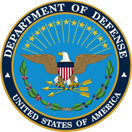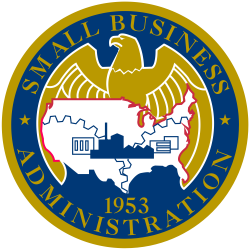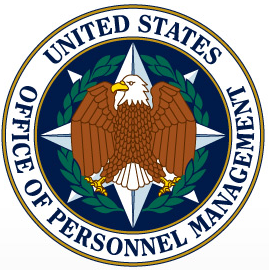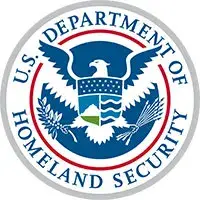NewsFlash | Transition Assistance
Transition Assistance Program
|
|
|
|
|
|
|
|
Every year, approximately 200,000 men and women leave U.S. military service and return to life as civilians, a process known as the military to civilian transition. The Transition Assistance Program (TAP) provides information, tools and training to ensure Service members, their spouses and/or caregivers are prepared for the next step in civilian life. TAP provides information and training to ensure Service members transitioning from active-duty are prepared for their next step in life - whether pursuing additional education, finding a job in the public or private sector or starting their own business. The mandatory components of TAP are applicable for all Service members who have at least 180 continuous days or more on active duty; this includes National Guard and Reserve.
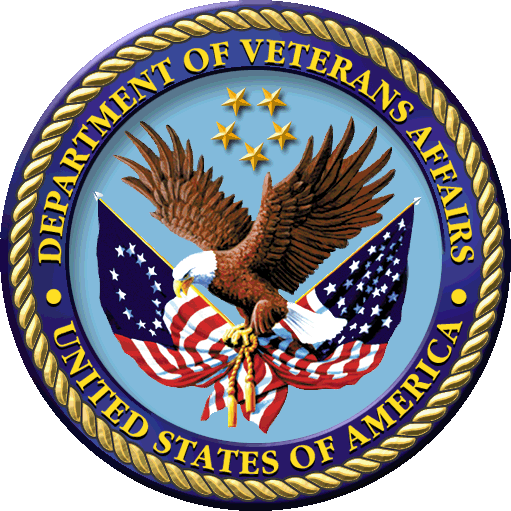 TAP, overseen by the Office of Secretary Defense (OSD) to prepare eligible Service members and their families to face the many challenges of transitioning from active duty back to civilian life. TAP provides information, tools, and training to ensure service members and their spouses are prepared for the next step in civilian life. TAP enables Service members to fulfill the requirements of the Veterans Opportunity to Work (VOW) to Hire Heroes Act of 2012 and meet their Career Readiness Standards (CRS) as mandated by the TAP for Military Personnel Department of Defense Instruction 1332.35.
TAP, overseen by the Office of Secretary Defense (OSD) to prepare eligible Service members and their families to face the many challenges of transitioning from active duty back to civilian life. TAP provides information, tools, and training to ensure service members and their spouses are prepared for the next step in civilian life. TAP enables Service members to fulfill the requirements of the Veterans Opportunity to Work (VOW) to Hire Heroes Act of 2012 and meet their Career Readiness Standards (CRS) as mandated by the TAP for Military Personnel Department of Defense Instruction 1332.35.
The TAP curriculum is designed and reviewed on an annual basis by the TAP Interagency Partnership and provides information and resources on a variety of topics related to employment, higher education, finance, transition stress, entrepreneurship and more. // IMPORTANT NOTICE // The Marine Corps Cybersecurity has identified a fake DoDTAP website, DoDTAP.com that attempts to get PII and download malicious software on individuals PCs. // Please ensure that you use only the official DoDTAP.mil website //
 Specific Branch Information:
Specific Branch Information:
![]() U.S. Army
U.S. Army ![]() U.S. Navy
U.S. Navy![]() U.S. Marine Corps
U.S. Marine Corps![]() U.S. Coast Guard
U.S. Coast Guard![]() U.S. Air Force
U.S. Air Force![]() U.S. Space Force
U.S. Space Force
U.S. Department of Veterans Affairs (VA) – VA is responsible for educating transitioning Service members on the wide range of Veterans' benefits available to them and assisting with the process of applying for benefits during the transition process. The VA contributions to the TAP curriculum includes the VA Benefits and Services brief. After separation, the VA continues to provide educational and vocational counseling to Service members. The VA portion of TAP is a one-day, in-person course called VA Benefits and Services. Led by VA Benefits Advisors, the course helps Service members, families and caregivers understand how to navigate VA and the benefits and services they have earned through the Service member’s military career. The course offers interactive exercises, real examples, and covers topics important to the Service member like family support, disability compensation, education, and health care benefits. Online Course Instructions: The VA Benefits and Services course is now available online through TAPevents.mil to transitioning Service members, Veterans, family members, and caregivers. The information provided on TAPevents.mil is validated by the VA. It is intended to inform transitioning Service members, Veterans, spouses, dependents, survivors and caregivers of the VA benefits, services and resources they have earned. This course explains how to navigate your transition journey with Veterans benefits and services, including maintaining your health, applying for disability compensation, getting career ready, finding a place to live and connecting with your community.
- VA Benefits and Services
- VA Benefits 101
- VA Education Benefits
- Community Integration Resources
- Mental Health for Families
- Vet Centers
- VA Education and Training Benefits for Spouses and Dependent Children
- Reserve Component Dual Payments Resource Guide
- Social and Emotional Health Resources
- VA Life Insurance Benefits
- Disability Compensation
- VA Home Loan Guaranty Program
- Survivor and Casualty Assistance Resources
- Other Than Honorable
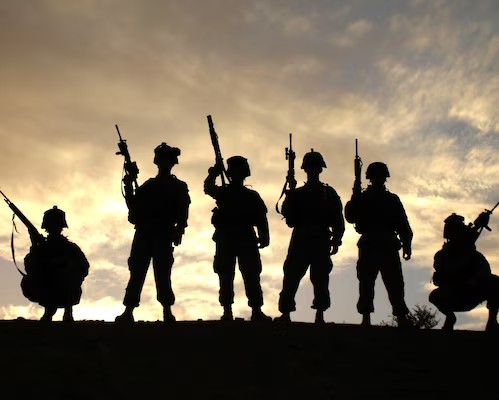 Upcoming TAP Classes – Military to civilian transition occurs within a complex and dynamic network of relationships, programs, services, and benefits, which includes transition planning and assistance efforts by individual Service branches, the interagency TAP partnership, and community resources delivered through local government, private industry, and nonprofit organizations.
Upcoming TAP Classes – Military to civilian transition occurs within a complex and dynamic network of relationships, programs, services, and benefits, which includes transition planning and assistance efforts by individual Service branches, the interagency TAP partnership, and community resources delivered through local government, private industry, and nonprofit organizations.
Partnering Agencies
U.S. Department of Labor (DOL) – DOL conducts a one day employment overview that teaches Service members vital skills such as how to build a resume and prepare for an interview. Their contribution to the curriculum also includes the DOL Employment Track and the DOL Vocational Track. America's Veterans can find employment information, occupational training, education and training opportunities, job placement, job counseling, job search workshops, resume preparation assistance, and career counseling state Workforce Career or One-Stop Centers. These offices also have specialists to help service-connected disabled Veterans find employment. Led by VA Benefits Advisors, the course helps transitioning service members understand how to navigate VA and the benefits and services earned through military service. The course offers interactive exercises, real examples, and covers topics important to you like family support, disability compensation, education, and health care benefits.
U.S. Department of Education (ED) – ED promotes the success of TAP for Service members and their families by communicating available information and expertise regarding college access, success, and affordability, financial aid and programs specifically sponsored or overseen by ED for the benefit of Service members.
U.S. Small Business Administration (SBA) – SBA offers support for veterans as they enter the world of business ownership. Look for funding programs, training, and federal contracting opportunities. To help Veterans succeed, SBA offers training courses in-person and online. Learn the basics of owning a business and get access to SBA resources. The SBA helps small businesses get funding by setting guidelines for loans and reducing lender risk. These SBA-backed loans make it easier for small businesses to get the funding they need. Every year, the federal government awards a portion of contracting dollars specifically to businesses owned by Veterans. Also, small businesses owned by Veterans, may be eligible to purchase surplus property from the federal government. Certification with SBA allows service-disabled Veteran-owned small businesses (SDVOSBs) to compete for federal sole-source and set-aside contracts across the federal government.
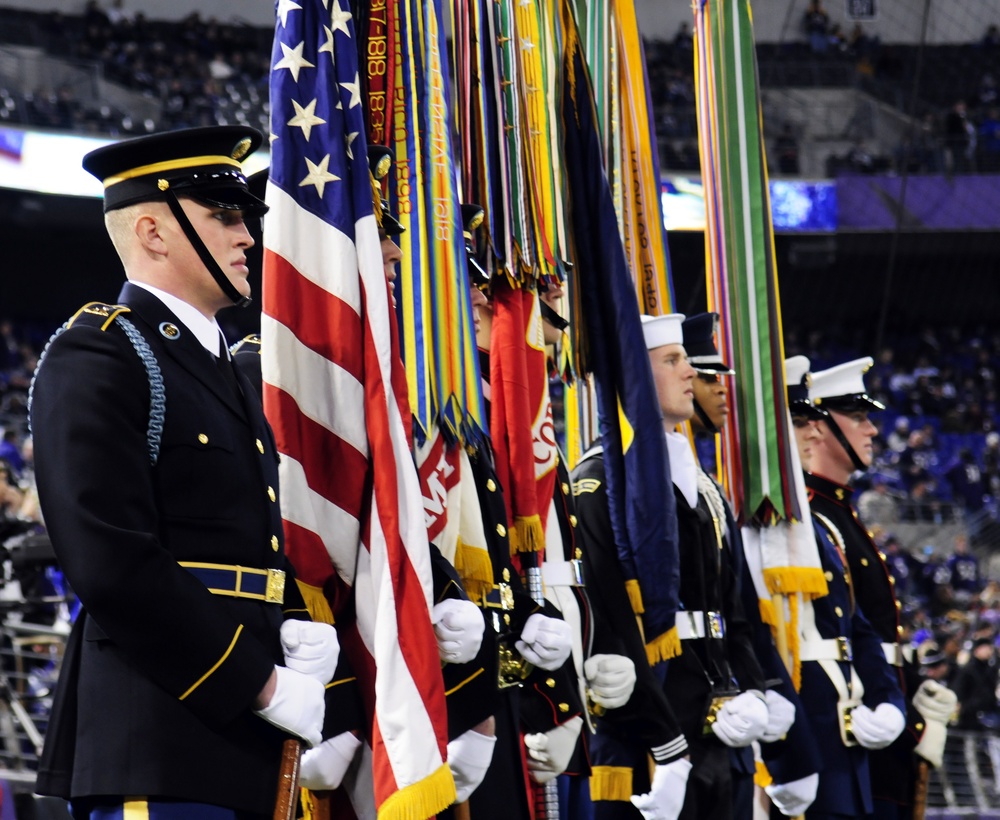 U.S. Office of Personnel Management (OPM) – OPM provides Service members with an overview of Federal employment, the careers offered within the Federal government and a linkage to the kinds of occupations and competencies transitioning Service members and Veterans have. It also acquaints transitioning Service members and Veterans with resources to support them in obtaining work with the Federal Government, including the Veterans Employment Program Office, which offers career tools such as a Military Skills Translator, a Resume Builder and a federal job search database. If you're a Veteran who served on active duty in the U.S. Armed Forces and were separated under honorable conditions, you may be eligible for Veterans' preference, as well as other Veteran specific hiring options. With Veterans' Preference, you may receive preference over non-veteran applicants in the hiring process. Veterans' Preference can be used when applying to permanent and temporary positions in both the competitive and excepted service (of the executive branch). Veterans' Preference gives eligible Veterans preference in appointment over many other applicants. Veterans' preference does not guarantee Veterans a job and it does not apply to internal agency actions such as promotions, transfers, reassignments and reinstatements.
U.S. Office of Personnel Management (OPM) – OPM provides Service members with an overview of Federal employment, the careers offered within the Federal government and a linkage to the kinds of occupations and competencies transitioning Service members and Veterans have. It also acquaints transitioning Service members and Veterans with resources to support them in obtaining work with the Federal Government, including the Veterans Employment Program Office, which offers career tools such as a Military Skills Translator, a Resume Builder and a federal job search database. If you're a Veteran who served on active duty in the U.S. Armed Forces and were separated under honorable conditions, you may be eligible for Veterans' preference, as well as other Veteran specific hiring options. With Veterans' Preference, you may receive preference over non-veteran applicants in the hiring process. Veterans' Preference can be used when applying to permanent and temporary positions in both the competitive and excepted service (of the executive branch). Veterans' Preference gives eligible Veterans preference in appointment over many other applicants. Veterans' preference does not guarantee Veterans a job and it does not apply to internal agency actions such as promotions, transfers, reassignments and reinstatements.
U.S. Department of Homeland Security (DHS) – DHS was established in 2002, combining 22 different federal departments and agencies into a unified, integrated Cabinet agency. With five distinct mission areas related to securing the homeland, DHS is the ideal employer to maximize the skills and training U.S. Veterans have acquired while serving our country, as well as the commitment to serve and protect our nation. The Department is committed to providing employment opportunities for our Veterans and Service members returning home from active duty as well as their spouses and family members. To honor their service, the Department participates in programs to help injured soldiers and disabled Veterans gain skills and transition to civilian work. Hiring Veterans and military spouses into DHS honors the sacred promise that Veterans and their spouses have made to protect our nation. In addition to opportunities at DHS Headquarters, there are exciting positions in our operational and support components.
Military Veterans, Reserve Components, and Selective Service
 Federal Law requires nearly all male US citizens and male immigrants, 18 through 25, register with Selective Service. If you failed to register with Selective Service System, Section 12(g) of the Military Selective Service Act allows non-registrants to receive benefits under specific conditions. As a Veteran, or part-time National Guard or Reservist, you satisfy those conditions with your DD Form 214 showing the dates of your military service, or a current military ID card if still on active duty or a member of the National Guard and Reserves. These documents serve as evidence that your failure to register was not knowing and willful. A person who volunteered for military service would not deliberately defy a process that might result in military service. Therefore, men who served on full-time active duty in the U.S. Armed Forces should not be denied vocational training under WOIA; government employment; and security clearances, on the basis of their failure to register with Selective Service. As long as you have proof of your active duty military service, such as your DD 214, or current military ID card if still on active duty or a member of the National Guard or Reserves, your subsequent failure to register should not be a bar to any benefits or programs, contingent upon registration compliance, for which you are otherwise qualified.
Federal Law requires nearly all male US citizens and male immigrants, 18 through 25, register with Selective Service. If you failed to register with Selective Service System, Section 12(g) of the Military Selective Service Act allows non-registrants to receive benefits under specific conditions. As a Veteran, or part-time National Guard or Reservist, you satisfy those conditions with your DD Form 214 showing the dates of your military service, or a current military ID card if still on active duty or a member of the National Guard and Reserves. These documents serve as evidence that your failure to register was not knowing and willful. A person who volunteered for military service would not deliberately defy a process that might result in military service. Therefore, men who served on full-time active duty in the U.S. Armed Forces should not be denied vocational training under WOIA; government employment; and security clearances, on the basis of their failure to register with Selective Service. As long as you have proof of your active duty military service, such as your DD 214, or current military ID card if still on active duty or a member of the National Guard or Reserves, your subsequent failure to register should not be a bar to any benefits or programs, contingent upon registration compliance, for which you are otherwise qualified.
On December 23, 2024, the “Servicemember Quality of Life Improvement and National Defense Authorization Act (NDAA) for Fiscal Year 2025” was signed into law. Section 1108 of the NDAA amended section 3328 of title 5, United States Code (U.S.C.), by adding newly designated paragraphs (b) and (d), to establish eligibility for Federal civilian employment for individuals who failed to register for the Selective Service but who served in the military. As a result of this amendment, agencies are no longer required to send requests for adjudication to OPM for an individual who did not register for the Selective Service if that individual—
- is a Veteran
- provides evidence of Active-Duty service to the executive agency in which the individual seeks an appointment; and
- is no longer eligible to register for the Selective Service due to age.
For purposes of this amendment, the terms “Veteran” and “Active-Duty” have the meaning given those terms under section 101 of title 38, U.S.C. Federal government agencies must continue to submit adjudication requests to OPM under subpart G of part 300, title 5, Code of Federal Regulations, for individuals who do not meet the conditions above.
If you are 26 or older, it's too late to register. Pursuant to federal law, a person required to register with Selective Service, but who failed to register, may not be denied any federal right or benefit if he can show by a preponderance of the evidence (e.g. more-likely-than-not) that his failure to register was not knowing and willful. See 50 U.S.C. 3811(g). While there is currently no draft, registration with the Selective Service System is the most publicly visible program during peacetime that ensures operational readiness in a fair and equitable manner. Currently, in active standby, which is the Selective Service System peacetime posture, Selective Service interacts with state and territory partners primarily on readiness requirements and registration awareness. This includes governors’ recommendation of both the state/territory directors and volunteer local board members, all of whom are appointed by the Director of Selective Service on behalf of the President of the United States.
VA Transition Assistance Program Case Management (TCM)
 Post-9/11 Military2VA (M2VA) teams are trained to address the unique needs of reintegrating service members and Post-9/11 era Veterans. Post 9/11 M2VA Case Management team members assist Veterans, families, and caregivers in navigating the VA health care system and support Veterans health and wellness goals. Post-9/11 M2VA team members stand ready to assist with what matters most to Veterans—from accessing care and resources to developing personalized goals for care and navigating benefits.
Post-9/11 Military2VA (M2VA) teams are trained to address the unique needs of reintegrating service members and Post-9/11 era Veterans. Post 9/11 M2VA Case Management team members assist Veterans, families, and caregivers in navigating the VA health care system and support Veterans health and wellness goals. Post-9/11 M2VA team members stand ready to assist with what matters most to Veterans—from accessing care and resources to developing personalized goals for care and navigating benefits.
VA Liaisons for Healthcare are nurses and social workers who coordinate the transfer of health care from DoD to VA for service members as they exit the military. VA Liaisons connect Veterans with the Post-9/11 Military2VA team at your selected VA facility. Located at DoD installations, VA Liaisons coordinate health care needs from the military treatment facility (MTF) to a VA health care facility. Whether you need inpatient or outpatient care, VA Liaisons will assist in the transfer of your care at the appropriate time in your recovery and rehabilitation process. VA Liaisons also collaborate with DoD care managers and treatment teams regarding VA resources and treatment options available for your care. If there is not a VA Liaison at your installation, there are regional VA Liaisons available to virtually coordinate health care access to VA facilities nationwide.
Career Transition for Special Forces
 The Honor Foundation (THF) – Founded in 2015 from the Navy SEAL Foundation, THF serves Special Operations service members who hold themselves to a high standard of core values, guiding principles, and work ethic. THF recruits on a rolling basis those military professionals who are, ideally, 12-15 months out from their separation or retirement. There are no formal educational prerequisites, however, the educational experience is approximately 3 months/120 hours of intense executive style education, professional development, one-on-one career coaching, and has a strict attendance policy. THF currently provides transition courses at nine campuses across the country:
The Honor Foundation (THF) – Founded in 2015 from the Navy SEAL Foundation, THF serves Special Operations service members who hold themselves to a high standard of core values, guiding principles, and work ethic. THF recruits on a rolling basis those military professionals who are, ideally, 12-15 months out from their separation or retirement. There are no formal educational prerequisites, however, the educational experience is approximately 3 months/120 hours of intense executive style education, professional development, one-on-one career coaching, and has a strict attendance policy. THF currently provides transition courses at nine campuses across the country:
- Camp Lejeune – nCino, The Offices at Mayfaire IV, Wilmington, NC
- Eglin – The Place on Beal, Fort Walton Beach, FL
- Fort Bragg | Pinehurst – Sandhills Community College, Pinehurst, NC
- Fort Bragg | Fayetteville – Fayetteville Technical Community College
- JBLM - Pierce College Fort Steilacoom, Lakewood, WA
- San Diego – THF Headquarters, 11055 Roselle St., Suite 120
- Tampa – Baldwin Risk Partners, Corporate Center II, Tampa, FL
- TN/Campbell - Clarksville Regional Airport, Clarksville, TN
- Virginia Beach – Neptune Shield, Virginia Beach, VA
THF also provides Veterans access to Transition Assistance through Vector Accelator. Vector is redefining the military-to-civilian experience by introducing an important first step in the transition process: intentional introspection. The virtual, on-demand program guides participants through modules designed to help them gain clarity on their identity, motivations, strengths, and priorities so that they can pursue their next mission in life with confidence and conviction. After completing successful alpha and beta testing, Vector Accelerator launched a pilot program in 2024, inviting all active-duty or separated members of the military to participate.
Important Phone Numbers
Air Force Wounded Warrior Program 1-800-581-9437
Army & Air Force Exchange 800-527-2345
Army Recovery Care Program 1-800-984-8523
Beneficiary Travel 855-574-7292
Benefits Hotline 800-827-1000
Bereavement Counseling 877-927-8387 or 202-461-6530
Burial and Memorial Benefits 800-535-1117
CHAMPVA Healthcare for Surviving Spouses and Dependents 800-733-8387
Coast Guard Exchange 800-572-0230
Community Care Billing 877-881-7618
Debt Management Center 800-827-0648
Defense Commisary Agencey 804-734-8000
Dental (VA) 877-222-VETS
Dental (VADIP Delta) 855-370-3303
Dental (VADIP MetLife) 888-310-1681
Education (GI Bill) 888-442-4551
Foreign Medical Program 877-345-8179 or 303-331-7590
Headstones and Markers 800-697-6947
Health Care 877-222-8387
Home Loans 877-827-3702
Homeless Veterans 877-424-3838
Life Insurance, All Programs Other than SGLI, FSGLI, TSGLI, VGLI 800-669-8477
Life Insurance, Veterans’ Group Life Insurance Program (VGLI), Claims for Servicemembers’ Group Life Insurance (SGLI) and Family SGLI 800-419-1473
Marine Corps Wounded Warrior Regiment 1-877-487-6299
My HealtheVet 877-327-0022 or 800-877-8339 (TTY)
Native American Direct Home Loans 888-349-7541
Navy Exchange 877–810–9030
Navy Wounded Warrior (NWW) Safe Harbor 855-NAVY WWP / 855-628-9997
Presidential Memorial Certificate Program 202-565-4964
Special Operations Command Warrior Care Program 877-672-3039
Spina Bifida Program 888-820-1756
Spouses, Dependents, Survivors and Family Caregivers Benefits 855-260-3274 or 202-461-1077
TRICARE East Humana Military (East) 800-444-5445
TRICARE West Health Net (West) 844-866-9378
TTY, Federal Relay 711
Uniformed Services ID (USID) Card 800-477-8227
VA Hotline 800-MyVA411 (800-698-2411)
Veterans Canteen (Special Order Desk) 800-664-8258
Veterans Crisis Line Dial 988, then Press 1
Veterans Health ID Card 877-222-8387 (TTY: 711)
Vet Centers 877-927-8387
Vet Verify (Veterans Online Shopping) 844-868-8672
Women Veterans 877-222-8387
72-Hour Emergency Care Notification Line 844-724-7842
Important Websites
VA Home Page www.VA.gov
Air Force Wounded Warrior Program www.woundedwarrior.af.mil/
Army & Air Force Exchange www.shopmyexchange.com/
Army Recovery Program www.arcp.army.mil/
Beneficiary Travel www.va.gov/health-care/get-reimbursed-for-travel-pay/
Benefits and Services Overview www.choose.va.gov
Benefits Book www.va.gov/opa/publications/benefits_book.asp
Bereavement Counseling www.vetcenter.va.gov/Bereavement_Counseling.asp
Burial and Memorial Benefits www.cem.va.gov
Caregiver Support www.caregiver.va.gov
CHAMPVA www.va.gov/communitycare/programs/dependents/champva/
Coast Guard Exchange https://shopcgx.com/
Community Care www.va.gov/communitycare/
Defense Commissary Agency https://shop.commissaries.com/
Dental www.va.gov/dental/
Dental (VADIP Delta) www1.deltadentalins.com/federal/vadip.html
Dental (VADIP MetLife) www.metlife.com/vadip/
Disability Claims and Appeals www.va.gov/claim-or-appeal-status/
Discharge Upgrade www.va.gov/discharge-upgrade-instructions
Education Benefits www.va.gov/education/
Environmental Exposures www.publichealth.va.gov/exposures
Federal Recovery Consultant Office www.va.gov/vadodhealth/frcp.asp
Geriatrics and Extended Care www.va.gov/geriatrics
Health Care Eligibility www.va.gov/health-care/
Health Care Enrollment Application for Health Benefits www.va.gov/health-care/apply-for-health-care-form-10-10ez/introduction
Home Loan Guaranty www.benefits.va.gov/homeloans
Homeless Veterans www.va.gov/homeless
Life Insurance www.benefits.va.gov/insurance
Login.gov https://login.gov/
Marine Corps Wounded Warrior Regiment www.woundedwarrior.marines.mil/
Mental Health www.mentalhealth.va.gov
Military Service Records www.archives.gov/veterans
My HealtheVet www.myhealth.va.gov
National Association of State Directors of Veterans Affairs https://nasdva.us/
National Association of State Veterans Homes https://nasvh.org/
National Resource Directory www.nrd.gov
Native American Direct Home Loans www.va.gov/housing-assistance/home-loans/loan-types/native-american-direct-loan/
Navy Exchange www.mynavyexchange.com/
Navy Wounded Warrior (NWW) Safe Harbor www.navywoundedwarrior.com/
PACT Team and Primary Care www.va.gov/health-care/about-va-health-benefits/your-care-team/
Post 9/11 Veterans www.va.gov/post911veterans
Presidential Memorial Certificate Program www.cem.va.gov/pmc.asp
Returning Service Members www.va.gov/post911veterans
Servicemembers Benefits www.va.gov/service-member-benefits/
Service Records www.archives.gov/personnel-records-center/military-personnel
State Departments of Veterans Affairs www.va.gov/statedva.htm
Special Operations Command Warrior Care Program www.socom.mil/care-coalition/
TRICARE www.tricare.mil/
Uniformed Services ID (USID) Card www.cac.mil/Next-Generation-Uniformed-Services-ID-Card/Getting-Your-ID-Card/
VA Benefits Fact Sheets www.benefits.va.gov/benefits/factsheets.asp
VA Benefits for Spouses, Dependents, Survivors and Family Caregivers www.va.gov/family-and-caregiver-benefits/
VA Forms www.va.gov/vaforms
VA Solid Start www.benefits.va.gov/transition/solid-start.asp
VA Welcome Kit www.va.gov/welcome-kit/
Veterans Benefits Regional Offices Website www.benefits.va.gov/benefits/offices.asp
Veterans Benefits and Resources from Other Federal Agencies https://benefits.va.gov/benefits/other-federal-benefits.asp
Veterans Canteen Service www.vacanteen.va.gov/
Veterans Canteen Online Shopping (Shop VCS) https://shopvcs.va.gov/
Veterans Crisis Line www.veteranscrisisline.net
Veterans ID Card www.va.gov/records/get-veteran-id-cards/vic/
Veterans Health ID Card www.va.gov/health-care/get-health-id-card/
Veterans Hospitals Locator www.va.gov/find-locations/
Veterans Service Officers (VSO) Representatives www.va.gov/get-help-from-accredited-representative/find-rep/
Veterans Readiness and Employment www.va.gov/careers-employment/vocational-rehabilitation/
Vet Centers www.vetcenter.va.gov
Vet Verify (Veterans Online Shopping) www.vetverify.org/index.xhtml
Women Veterans www.womenshealth.va.gov
72-Hour Emergency Care Notification Portal emergencycarereporting.communitycare.va.gov
NW MIRECC disseminates mission-relevant knowledge through publications and continuing health care education programs across VISN 20 and nationally. Sign up for email updates or access your subscriber preferences: https://public.govdelivery.com/accounts/USVHAVISN20/subscriber/new.
Use of these Materials and Finding VA Health Care
Please note that the health care information provided in these materials is for educational purposes only. It does not replace the role of a medical practitioner for advice on care and treatment. If you are looking for professional medical care, find your local VA healthcare center by using the VA Facilities Locator & Directory. This page may contain links that will take you outside of the Department of Veterans Affairs website. VA does not endorse and is not responsible for the content of the linked websites.
VA Web Disclaimers
Disclaimer of Endorsement: Reference herein to any specific commercial products, process, or service by trade name, trademark, manufacturer, or otherwise, does not necessarily constitute or imply its endorsement, recommendation, or favoring by the United States Government. The views and opinions of authors expressed herein do not necessarily state or reflect those of the United States Government, and shall not be used for advertising or product endorsement purposes.
Disclaimer of Hyperlinks: The appearance of external hyperlinks does not constitute endorsement by the Department of Veterans Affairs of the linked websites, or the information, products or services contained therein. For other than authorized VA activities, the Department does not exercise any editorial control over the information you may find at these locations. All links are provided with the intent of meeting the mission of the Department and the VA website. Please let us know about existing external links which you believe are inappropriate and about specific additional external links which you believe ought to be included.
Disclaimer of Liability: With respect to documents available from this server, neither the United States Government nor any of its employees, makes any warranty, express or implied, including the warranties of merchantability and fitness for a particular purpose, or assumes any legal liability or responsibility for the accuracy, completeness, or usefulness of any information, apparatus, product, or process disclosed, or represents that its use would not infringe privately owned rights.
Reference from this web page or from any of the information services sponsored by the VA to any non-governmental entity, product, service or information does not constitute an endorsement or recommendation by the VA or any of its employees. We are not responsible for the content of any "off-site" web pages referenced from this server.
Disclaimer: The sharing of any non-VA information does not constitute an endorsement of products or services on the part of the VA.
![]()
VA Regional Offices
 The Veterans Benefits Administration (VBA) helps service members transition out of military service, and assists with Veterans with education, home loans, life insurance and much more. Service members, Veterans, their families, and Survivors are invited to request information on VA Benefits including disability compensation, pension, fiduciary, education, Veteran Readiness and Employment (VR&E), Home Loans, and Insurance. In addition to information on VA Benefits Veterans may initiate an intent to file and request assistance with filing compensation and pension claims. Visit regional office websites to learn about the services the regional office provides, directions to the facility, hours of operation, and the leadership team that serves the regional office.
The Veterans Benefits Administration (VBA) helps service members transition out of military service, and assists with Veterans with education, home loans, life insurance and much more. Service members, Veterans, their families, and Survivors are invited to request information on VA Benefits including disability compensation, pension, fiduciary, education, Veteran Readiness and Employment (VR&E), Home Loans, and Insurance. In addition to information on VA Benefits Veterans may initiate an intent to file and request assistance with filing compensation and pension claims. Visit regional office websites to learn about the services the regional office provides, directions to the facility, hours of operation, and the leadership team that serves the regional office.
Find out if you can get VA health care as a Veteran
The following four categories of Veterans are not required to enroll but are urged to do so to permit better planning of health resources:
- Veterans with a service-connected (SC) disability rated at 50% or more.
- Veterans seeking care for a disability the military determined was incurred or aggravated in the line of duty, but which VA has not yet rated, within 12 months of discharge.
- Veterans seeking care for a SC disability only or under a special treatment authority.
- Veterans seeking health registry examinations. VA’s health registry evaluation is a free, voluntary medical assessment for Veterans who may have been exposed to certain environmental hazards during military service. The evaluations alert Veterans to possible long-term health problems that may be related to exposure to specific environmental hazards during their military service. VA has established several health registries to track and monitor the health of specific groups of Veterans. You may be eligible to participate in one or more of these health registries: Agent Orange Registry, Airborne Hazards and Open Burn Pit Registry, Gulf War Registry (includes Operations Iraqi Freedom and New Dawn), Ionizing Radiation Registry, Depleted Uranium Follow-Up Program, and Toxic Embedded Fragment Surveillance Center. Use the chart below to help determine your eligibility.
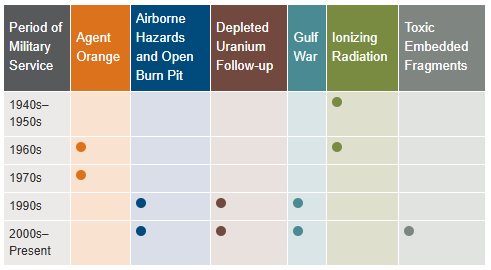
Find out how to apply for VA health care benefits as a Veteran or service member. For other mental health services, contact a VA medical center for information on eligibility and treatment options.
Community Care (Mission Act)
The MISSION Act became law in 2018, bringing the VA’s previous Veterans Choice Program to an end and establishing the Community Care Program. VA provides health care for Veterans from providers in your local community outside of VA. Veterans may be eligible to receive care from a community provider when VA cannot provide the care needed. This care is provided on behalf of and paid for by VA. Community care is also available to Veterans based on certain conditions and eligibility requirements, and in consideration of a Veteran’s specific needs and circumstances. VA offers urgent care services to eligible Veterans at in-network urgent care clinics to treat minor injuries and illnesses that are not life-threatening, such as colds, strep throat, sprained muscles, and skin and ear infections. Community care must be first authorized by VA before a Veteran can receive care from a community provider.
Vet Centers in VISN 20
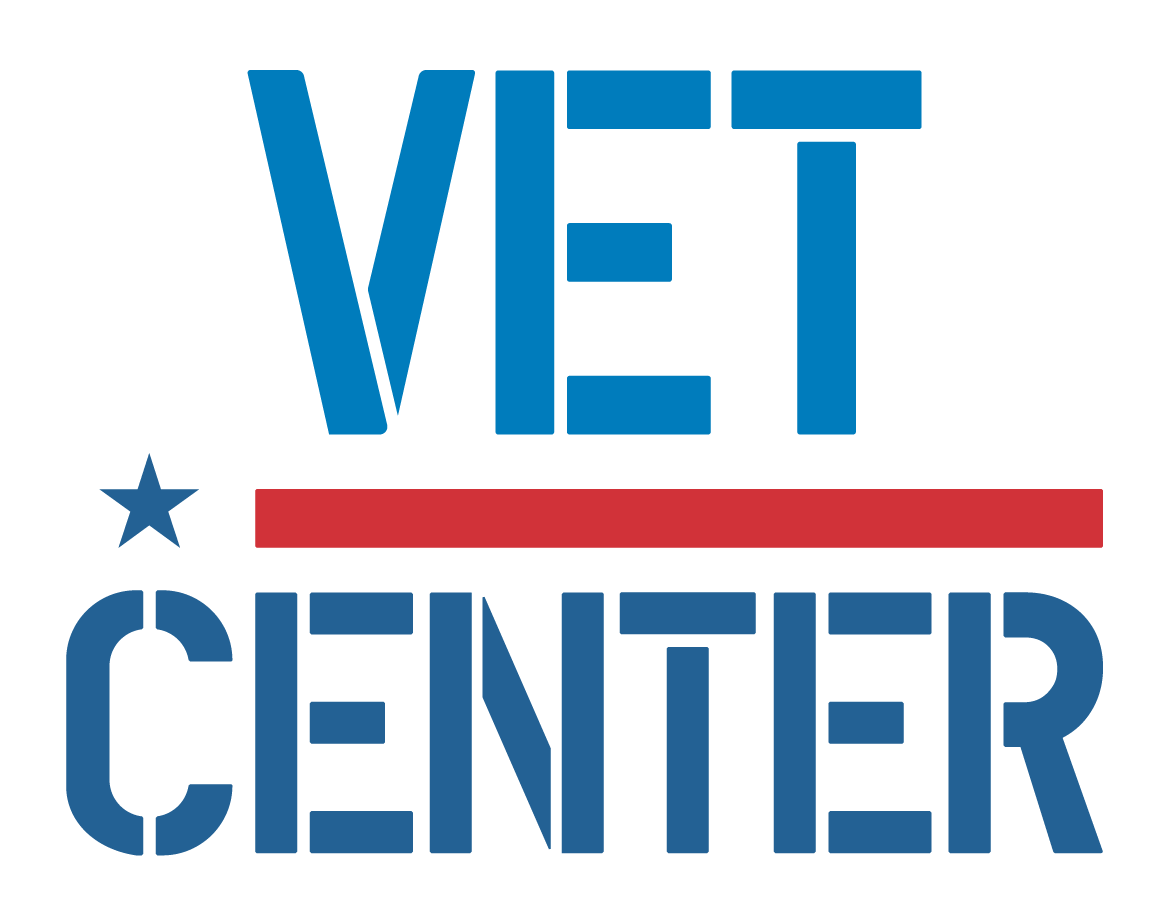 Vet Centers in VISN 20 are community-based counseling centers that provide a wide range of social and psychological services, including professional readjustment counseling to eligible Veterans, active-duty Army, Navy, Marine Corp, Air Force, Space Force, and Coast Guard service members, including National Guard and Reserve components, and their families. 1-877-927-8387 is an around the clock confidential call center where combat Veterans and their families can call to talk about their military experience or any other issue they are facing in their readjustment to civilian life. The staff is comprised of combat Veterans from several eras as well as families members of combat Veterans. This benefit is prepaid through the Veteran’s military service.
Vet Centers in VISN 20 are community-based counseling centers that provide a wide range of social and psychological services, including professional readjustment counseling to eligible Veterans, active-duty Army, Navy, Marine Corp, Air Force, Space Force, and Coast Guard service members, including National Guard and Reserve components, and their families. 1-877-927-8387 is an around the clock confidential call center where combat Veterans and their families can call to talk about their military experience or any other issue they are facing in their readjustment to civilian life. The staff is comprised of combat Veterans from several eras as well as families members of combat Veterans. This benefit is prepaid through the Veteran’s military service.
Alaska
| Anchorage Vet Center (Anchorage, AK) | Fairbanks Vet Center (Fairbanks, AK) |
| Kenai Vet Center Outstation (Soldotna, AK) | Wasilla Vet Center (Wasilla, AK) |
Idaho
| Boise Vet Center (Boise, ID) | East Idaho Vet Center (Idaho Falls, ID) |
Oregon
| Central Oregon Vet Center (Bend, OR) | Eugene Vet Center (Eugene, OR) |
| Grants Pass Vet Center (Grants Pass, OR) | Portland, OR Vet Center (Portland, OR) |
| Salem Vet Center (Salem, OR) |
Washington
Plan your trip to VA
 In 1946, Veterans Canteen Service (VCS) was established by law to provide comfort and well-being to America’s Veterans. With our many retail stores, cafés and coffee shops across the country, we serve those who have served our country. We are a self-sustaining entity providing merchandise and services to Veterans enrolled in VA’s healthcare system, their families, caregivers, VA employees, volunteers and visitors. We are honored to give back to the VA community through many programs established for the health and well-being of our nation’s heroes. Revenues generated from VCS are used to support a variety of programs, such as VA’s Rehabilitation Games, Fisher Houses, Poly-Trauma Centers for OIF/OEF/OND Veterans, disaster relief efforts, Substance Abuse Cessation, VA’s Homelessness initiatives, Women Veterans, Veteran Suicide Prevention and other activities.
In 1946, Veterans Canteen Service (VCS) was established by law to provide comfort and well-being to America’s Veterans. With our many retail stores, cafés and coffee shops across the country, we serve those who have served our country. We are a self-sustaining entity providing merchandise and services to Veterans enrolled in VA’s healthcare system, their families, caregivers, VA employees, volunteers and visitors. We are honored to give back to the VA community through many programs established for the health and well-being of our nation’s heroes. Revenues generated from VCS are used to support a variety of programs, such as VA’s Rehabilitation Games, Fisher Houses, Poly-Trauma Centers for OIF/OEF/OND Veterans, disaster relief efforts, Substance Abuse Cessation, VA’s Homelessness initiatives, Women Veterans, Veteran Suicide Prevention and other activities.
VCS operates over 200 Patriot Stores in Veterans Administration (VA) Medical Centers nationwide. Many of our stores have been recently updated and expanded to provide our customers with a modern, clean and comfortable shopping experience. Our stores welcome our customers with wider aisles, wood-like floors, enhanced lighting and directional signage. PatriotStores have expanded hours of operation to provide service for customers on weekends at most locations.
The Patriot Cafe is the best place in the VA Medical Center to enjoy delicious, freshly prepared breakfast or lunch served hot or cold each weekday. Providing Veterans, their families, VA employees, volunteers and visitors a place to relax and enjoy a meal or take-out for their convenience. With a wide variety of food from traditional comfort food, specialized menu selections and a large assortment of healthy choices; there is something for everyone's taste buds.
Hospital Service Directory
To find out whether there is a van near you use the Disabled American Veterans (DAV) Hospital Service Coordinator Directory to contact your nearest HSC for information or assistance. Please remember that the DAV Transportation Network is staffed by volunteers; therefore, it is unable to cover every community. The vans are driven by volunteers, and the rides coordinated by more than 133 Hospital Service Coordinators around the country. Our nation’s heroes travel around the globe to protect our freedoms—it’s only right that we return their dedication. Volunteering to drive a Vet ensures that even those living remotely from VA hospitals can make their appointments and never go without the treatment they need. Learn more about the DAV transportation network through the VISN 20 NewsFlash Resources section.
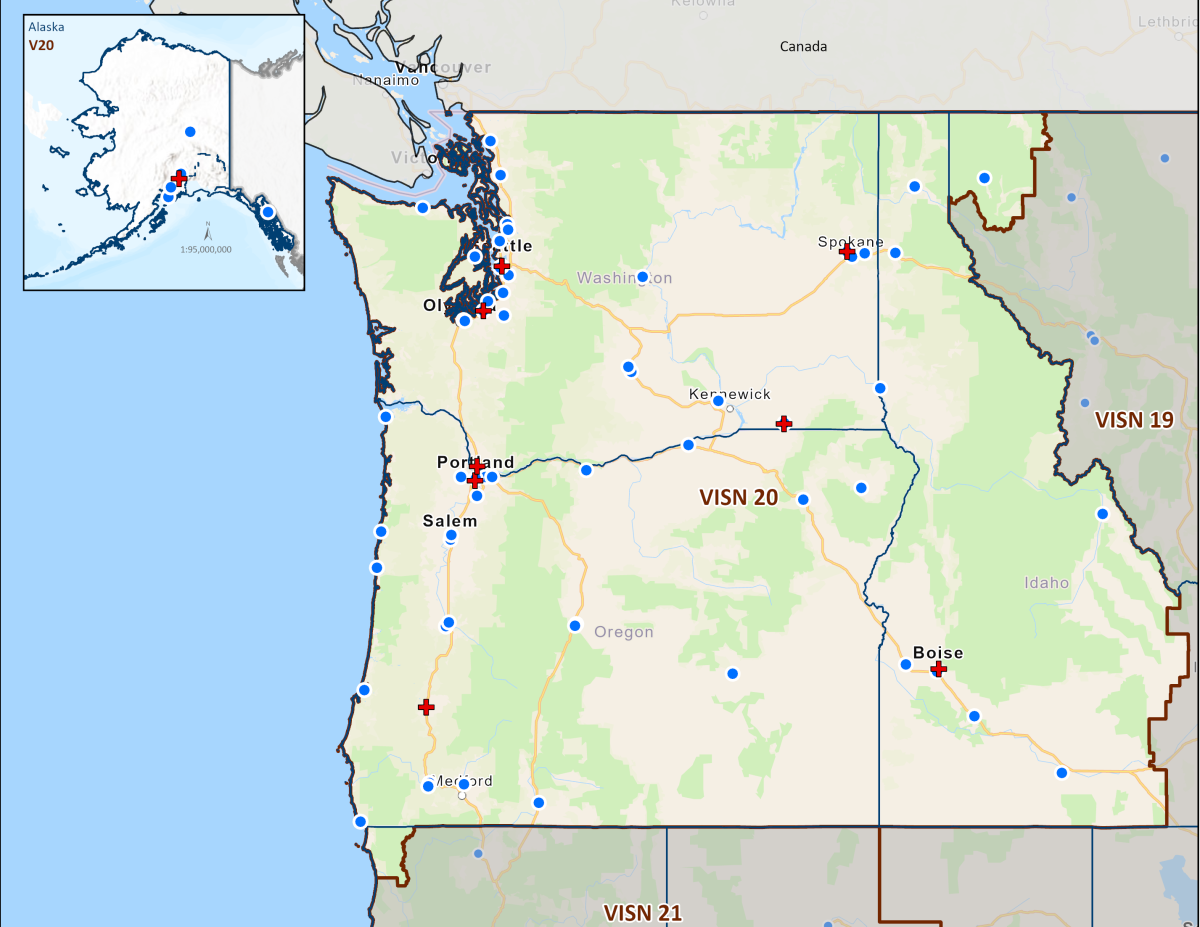 Today's VHA - the largest of the three administrations that comprise the VA - continues to meet Veterans' changing medical, surgical, and quality-of-life needs. VHA is the largest integrated health care system in the United States, providing care at 1,321 health care facilities, including 172 VA Medical Centers and 1,138 outpatient sites of care of varying complexity (VHA outpatient clinics) to over 9 million Veterans enrolled in the VA health care program. There are 18 Veterans Integrated Service Networks (VISNs) in VHA operating as regional systems of care to better meet local health care needs and provides greater access to care. In the Pacific Northwest, VISN 20 serves Veterans in Alaska, Oregon, Washington, most of Idaho, and one county each in California and Montana. Spanning 23% of the US land mass, VISN 20 is the largest geographic region of VA. Operating across three time zones over 817,417 square miles, VISN 20 is home to 273 federally recognized American Indian and Alaskan Native tribes. According to DoD, American Indians and Alaska Natives have one of the highest representations in the United States Armed Forces. VA consults with American Indian and Alaska Native tribal governments to develop partnerships that enhance access to services and benefits by Veterans and their families. VA is committed to ensuring that Native American Veterans and their families are able to utilize all benefits and services they are entitled to receive. As of the end of FY2024, 39% of VISN 20 enrollees resided in rural or highly rural areas.
Today's VHA - the largest of the three administrations that comprise the VA - continues to meet Veterans' changing medical, surgical, and quality-of-life needs. VHA is the largest integrated health care system in the United States, providing care at 1,321 health care facilities, including 172 VA Medical Centers and 1,138 outpatient sites of care of varying complexity (VHA outpatient clinics) to over 9 million Veterans enrolled in the VA health care program. There are 18 Veterans Integrated Service Networks (VISNs) in VHA operating as regional systems of care to better meet local health care needs and provides greater access to care. In the Pacific Northwest, VISN 20 serves Veterans in Alaska, Oregon, Washington, most of Idaho, and one county each in California and Montana. Spanning 23% of the US land mass, VISN 20 is the largest geographic region of VA. Operating across three time zones over 817,417 square miles, VISN 20 is home to 273 federally recognized American Indian and Alaskan Native tribes. According to DoD, American Indians and Alaska Natives have one of the highest representations in the United States Armed Forces. VA consults with American Indian and Alaska Native tribal governments to develop partnerships that enhance access to services and benefits by Veterans and their families. VA is committed to ensuring that Native American Veterans and their families are able to utilize all benefits and services they are entitled to receive. As of the end of FY2024, 39% of VISN 20 enrollees resided in rural or highly rural areas.
VA Medical Centers within VISN 20
Colonel Mary Louise Rasmuson Campus of the Alaska VA Healthcare System, Anchorage, Alaska
VA Boise Medical Center of the Boise VA Healthcare System, Boise, Idaho
VA Portland Medical Center of the Portland VA Healthcare System, Portland, Oregon
VA Roseburg Medical Center of the Roseburg VA Healthcare System, Roseburg, Oregon
VA White City Medical Center of the VA Southern Oregon Healthcare System, White City, Oregon
VA Seattle Medical Center of the VA Puget Sound Healthcare System, Seattle, Washington
Mann-Grandstaff Department of Veterans Affairs Medical Center, Spokane, Washington
Jonathan M. Wainwright Memorial VA Medical Center of the VA Walla Walla Healthcare System, Walla Walla, Washington
VA Puget Sound Health Care System (VAPSHCS) serves Veterans from a five-state area in the Pacific Northwest with two main divisions: American Lake VA Medical Center and Seattle VA Medical Center. Veterans Medical Centers are also located in Spokane, Vancouver, and Walla Walla. VA Outpatient Clinics and Vet Centers are located in Bellingham, Bellevue, Bremerton, Edmunds, Everett, Federal Way, Lacey, Mount Vernon, Olympia, Port Angeles, Puyallup, Richland, Renton, Silverdale, Seattle, Spokane, Union Gap, Vancouver, Walla Walla, Wenatchee, and Yakima.
VA Portland Health Care System (VAPORHCS) serves Veterans in Oregon and Southwest Washington with two main divisions: Portland VA Medical Center and Vancouver VA Medical Center. Veterans Medical Centers are also located in Roseburg, White City, and Vancouver, Washington. VA Outpatient Clinics and Vet Centers are located in Astoria, Bend, Boardman, Brookings, Eugene, Fairview, Grants Pass, Hines, Hillsboro, Klamath Falls, LaGrande, Lincoln City, Newport, Portland, Salem, The Dalles, and West Linn.
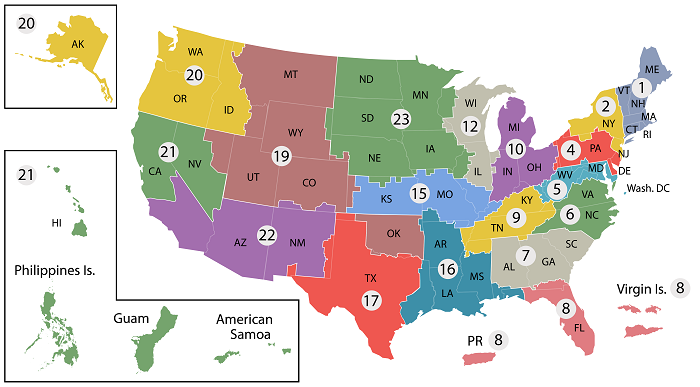
- VISN 1: VA New England Healthcare System
- VISN 2: New York/New Jersey VA Health Care Network
- VISN 4: VA Healthcare - VISN 4
- VISN 5: VA Capitol Health Care Network
- VISN 6: VA Mid-Atlantic Health Care Network
- VISN 7: VA Southeast Network
- VISN 8: VA Sunshine Healthcare Network
- VISN 9: VA MidSouth Healthcare Network
- VISN 10: VA Healthcare System
- VISN 12: VA Great Lakes Health Care System
- VISN 15: VA Heartland Network
- VISN 16: South Central VA Health Care Network
- VISN 17: VA Heart of Texas Health Care Network
- VISN 19: Rocky Mountain Network
- VISN 20: Northwest Network
- VISN 21: Sierra Pacific Network
- VISN 22: Desert Pacific Healthcare Network
- VISN 23: VA Midwest Health Care Network













